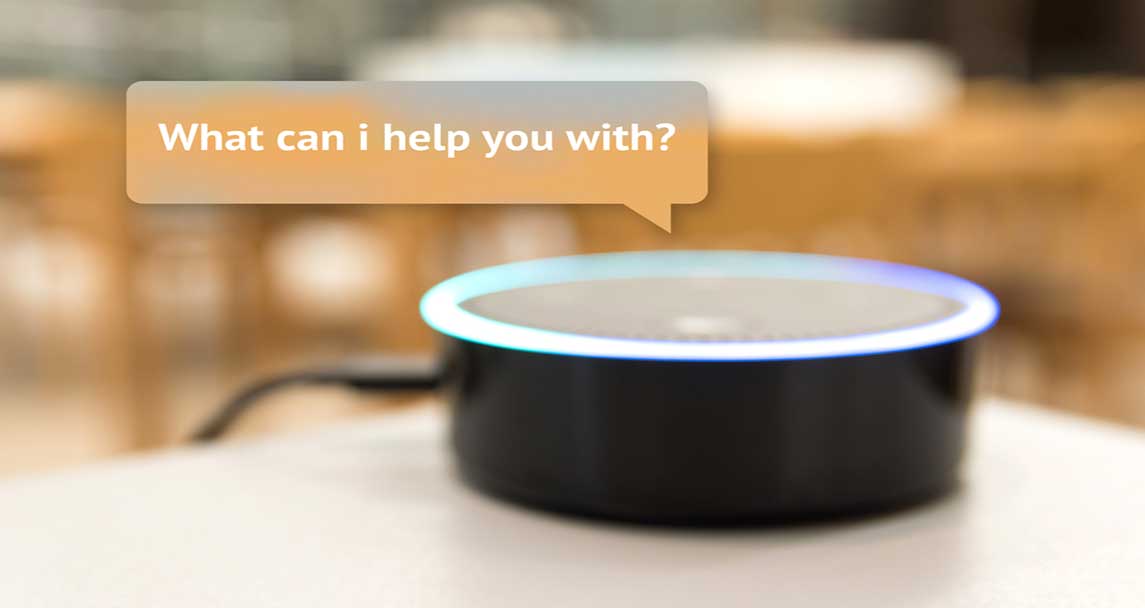How Smart Speakers Are Amplifying Sales In The Retail Sector

It is with no doubt that the digital age and online environment has had a major impact on the retail industry in recent years. While foot traffic into physical stores declines, online shopping and e-commerce sales have grown massively.
In fact, Chinese e-commerce website Alibaba surpassed Walmart as the largest retailer on the globe, meaning that a brand that only exists in the online space and has no physical store is responsible for the greatest volume of sales internationally. Meanwhile, Amazon recently implemented and test their first physical store, Amazon Go, a world first check-out free grocery store. Now queue the smart speakers. These personal virtual voice assistants are growing at a constant pace and are set to be the newest e-commerce channel according to recent surveys and reports. The phenomenon is even already predicted to be worth an estimated $40 billion US by 2020.
Hey Google, what is a smart speaker?
But what exactly is a smart speaker? In case you haven’t purchased on the 20 million Amazon Alexa devices sold, a smart speaker is a wireless, voice activated device usually powered by smartphone applications, internet access and artificial intelligence, and is becoming increasingly popular in homes and offices around the globe. In fact, unit sales of smart speakers grew at a triple-digit rate over the last year.
Whether it be Amazon’s Alexa, Microsoft’s Cortana or the Google Home device, consumers are adopting these products and embracing the technology at a great speed to transform their everyday environments into smart spaces. While for most people, their interaction with a smart speaker device is to quickly access weather reports, book an uber, control the AV system in their home or even ask it to tell jokes and play games, a recent study revealed that 44% of smart speaker users are utilising their device to even make purchases. Furthermore, Google has also stated that 62% of owners were likely to purchase something in the next month.
Alexa, how are people currently using a smart speaker?
Since the introduction of the coveted Amazon Alexa in 2014, consumers have been engaging and conversing with their smart speaker devices for a range of reasons. The product was originally pitched as a device used to control music with voice commands and has transformed into so much more as artificial intelligence and smart devices become more advanced. In fact, the ability for devices such as Amazon’s Alexa to continually evolve and develop new skills is one of the primary reasons consumers are drawn to the product.
With 54% of voice assistant users engaging with their device at least once a day, the ability to control and play music is still one of the primary interactions consumers are having. However, many consumers also recognise the benefits a smart assistant can have on their day-to-day lives. A recent internet retailer study of over 1000 consumers conducted by Toluna, recently revealed consumers mainly use their smart device as it allows them to easily multitask, provides the ability to do things faster in comparison to using other devices, empowers them to access answers and information instantaneously and even helps make their daily routine easier and run more smoothly. In fact, research by Adobe Analytics shows that 60% of smart speaker owners use the platform to learn about the weather, while 53% use it research and 39% ask for directions. The same study also identifies that ‘voice shopping’ is becoming an increasingly popular trend as the technology behind the smart speakers evolves and finds relevant results with greater accuracy.
Hey Cortana, how are smart speakers changing the retail landscape?
As voice shopping continually becomes more accepted amongst consumers as we speak, the impact it will have on the retail landscape is inevitable. In fact, earlier this year Amazon unveiled their grand plans to allow online marketing services such as sponsored product advertisements. When the feature rolls out later in the year, brands will be able to promote their products through verbal advertisements when a consumer is searching for similar products or even asks related questions. For example, a consumer may ask how to cook rice as an example, to which the platform would provide the relevant information and serve the user with a spoken digital advertisement selling rice cookers.
Furthermore, a recent survey in the United States identified the types of information consumers would be happy to hear from their voice-activated personal assistant. Interestingly, 52% of respondents acknowledged that they would be satisfied to receive information about deals, sales and promotions, while 38% would be happy to receive information on store locations and hours. Evidently, these consumer insights clearly demonstrate that smart speaker users are open to using the device to help them make purchases, whether it be through the platform, on a screen or in store.
However, as a result of voice activated search becoming more common with 55.5% of users searching for products, many consumers are already using their devices to purchase goods and services. In fact, a recent Smart Audio Report by the National Public Media in the U.S even identified that 58% of consumers who purchased a product through their device, ordered an item they have never previously purchased. This demonstrates that as the technology in the device solidifies and becomes a more accurate tool in providing assistance to the user, consumer confidence increases to allow purchases to be made simply around the home. Again, many users believe that the device provides great benefit in multitasking and making their routine easier, and the ability to shop while cleaning the house or preparing a meal is a huge testament to this.
With Amazon holding the largest market share and dominating the audio space, it is important to consider the implications that voice shopping will have for Amazon and their retail competitors. In fact, some reports suggest that Amazon’s Alexa has helped the company’s sales as users of Amazon’s device are believed to purchase Amazon products 6% more in comparison to the purchases they made before using the smart speaker. More so, these users spend an estimated 10% more on Amazon.
A recent Forbes report also identified that the company collects data in relation to product searches made on their audio devices which intelligently informs pricing and gathers real-time consumer insights. This allows the retail giant to become even more competitive in traditional online platforms, and through the audio space which they already dominate. Further studies by the global consultancy firm, Bain & Co. even revealed that consumers asking for products for the first time through Amazon’s Alexa and did not specify a particular brand, the device recommended and returned results of Amazon endorsed products over the top search queries.
As voice enabled devices and artificially intelligent smart speakers become more amongst consumers to complete every day tasks such as scheduling appointments and purchasing items, the retail industry can expect to see a huge shift. Brands will need to reconsider their current marketing and advertising services they’re utilising as audio advertisements will become more important to compete with the retail giant Amazon, and optimising webpages and implementing SEO services for voice related searches and long-tailed queries will become more crucial.
At RGC Digital Marketing, we are a digital media agency focused on connecting consumers to brands. we pride ourselves on innovation and being at the forefront of online marketing developments to provide relevant digital media services that will benefit your brand. For more information on smart speakers and how their development can impact your retail brand, please contact Richard on (02) 8883 2988 or email richard@rgcadvertising.com.au


